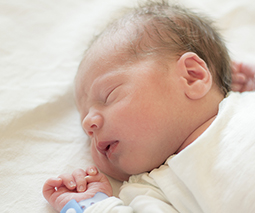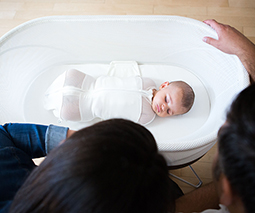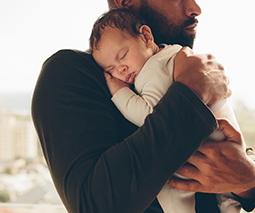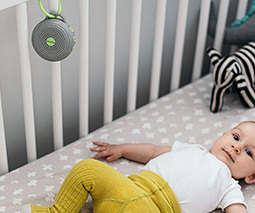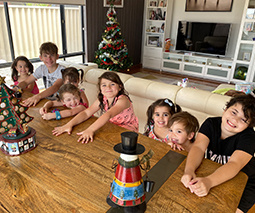Fact: Babies are terrible sleepers and that’s just the way it’s meant to be

The first year of your baby’s sleep is one marked with many interrupted nights and some pretty heavy sleep deprivation. What makes it even harder is all the pressure to get your baby sleeping a certain way, or to see your baby’s sleep as problematic – which can make you think you need to fix it.
The problem with that approach? Baby sleep isn’t problematic. They’re supposed to wake often in the night, and they’re designed to seek out comfort and support to help them go back to sleep.
The thing is, your baby’s first year involves so many milestones and developmental leaps – as well as the first viruses, vaccinations and teeth – that it’s simply not realistic to expect perfect sleep before your baby’s first birthday.
Sure, some parents will report their baby sleeping through the night from seven weeks, and there will always be those babies who seem to love sleep.
However, this is not the norm for babies. I call these babies Unicorn Babies: almost mythical and incredibly hard to find.
Let go of the Unicorn Baby dream, and focus instead on your beautiful baby, who is regular, normal and perfect – and simply isn’t ready to sleep through the night yet.
Babies aren’t built for sleep as we know it
Circadian rhythms refer to our 24-hour cycle of sleep and awake time. It’s like having an internal clock inside us that reminds us when we’re energised and when we’re drowsy, and this helps us prepare for sleep at roughly the same time each day.
You may have heard that babies are born with their days and nights mixed up, but actually babies are born without any circadian rhythms at all. It’s not until around eight weeks that circadian rhythms start to develop in new babies, and these aren’t fully established until baby is four months old.
By this time, you can expect your baby to have some recognition of the difference between night and day, and it becomes more realistic to expect your baby to sleep for longer chunks of time.
It’s not that simple
Thrown into the mix here are the internal stimuli that can play havoc with baby’s sleep, such as developmental changes, teething and first colds and viruses. Many parents at this point start questioning whether they’ve done something wrong in baby’s first months that have resulted in this ongoing disrupted sleep.
Rest assured that you haven’t done anything wrong when it comes to sleep. You haven’t instigated bad habits. You haven’t taught your baby to wake frequently. You have not failed your baby’s sleep, and there’s nothing you could have done differently from the start.
This is just how babies sleep.
In fact, let’s just go ahead and put it out there: Babies are terrible sleepers.
It’s high time we started dealing with that instead of killing ourselves to get our babies to sleep a certain way.
Looking at sleep differently
Some experts say – the truly good ones, I think – that we need to shift our thinking around sleep. If we stop seeing ‘sleeping through the night’ as a normal milestone for babies under one – and fretting when it doesn’t happen – we might be able to relax a little more about it all.
But just because your baby is sleeping like a normal baby (i.e. terribly), it doesn’t mean you can’t tweak and improve things. The trick is figuring out what normal baby sleep is all about and working on those areas that can be improved.

Better sleep is possible – if you know where to start
The first step to improved sleep is checking out your expectations around your baby’s sleep. Is your baby’s sleep actually within the normal range, compared with other babies? How many babies at this age are sleeping for more than five hours at a time? What percentage are still waking through the night?
You’d be surprised at just how normal your baby is.
Once you’ve done a bit of a check-in, you can start tweaking those sleep areas you can change to extend your baby’s sleep as much as possible – and more importantly, to get some extra snooze time yourself. Once you get your mindset right, there are lots of clever ways to put sleep back on the map.
 Need some more baby sleep advice? Our Parent School sleep experts can help. Click to find out more or book a one-on-one session.
Need some more baby sleep advice? Our Parent School sleep experts can help. Click to find out more or book a one-on-one session.

